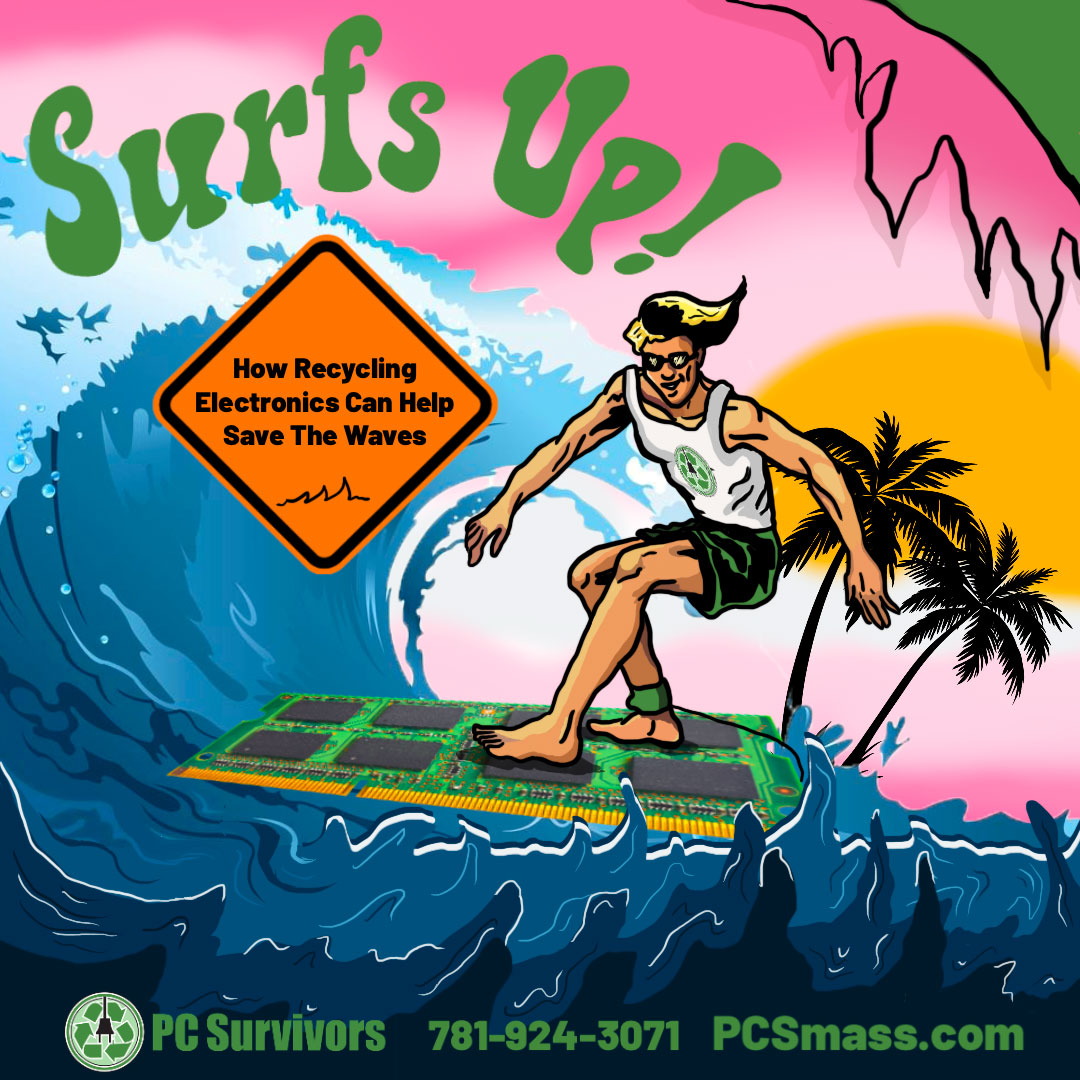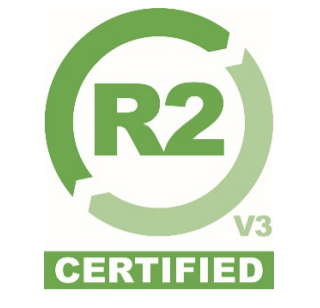Surfs Up! How Recycling Electronics Can Help Save The Waves

As the days get longer and the temperature rises, people across the country and around the world will be heading to the beach to cool off while enjoying the sun and sand. Unfortunately, the ocean’s temperatures as well as the levels of plastics and toxic substances also continue to rise at an alarming pace each year. One of the main contributing factors to this dilemma is the improper disposal of obsolete, outdated and otherwise unwanted electronics – also known as e-waste. Without swift human intervention, days at the beach as we know them could be numbered.
These changes have had dramatic impacts on oceanic life and how humans interact with them. For example, warmer waters on the East Coast of the United States have led to an influx of shark activity near the shore and forced many beaches to close or prohibit swimming. Other impacts of e-waste pollution are more subtle but equally, if not more, detrimental to our ecosystem. When e-waste is stored or processed improperly, it can leach harsh chemicals into the local water table. Eventually, this tainted water makes its way to oceans via streams and precipitation – often killing sea life and laying waste to underwater ecosystems in its path.
Don’t put your cooler or surfboard back in the garage just yet. There is still hope for our oceans. Properly recycling electronics can help preserve the seas as we know them. This month, we’ve put together a brief overview of the ways in which water is affected by e-waste and how effective electronic recycling can help save the waves for countless future generations.
Purity
Keeping e-waste out of the ocean, as well as water sources that lead to it, is essential to reducing the presence lead, arsenic, chromium and other harsh chemicals that electronics often contain. Simply tossing your electronic devices into a standard dumpster or trash bin is often the first stop on their trip to their new permanent home: a landfill. As mentioned previously, e-waste in landfills is directly correlated to water contamination. When you have your electronics processed by a reputable recycler, these hazardous materials will be disposed of properly.
Temperature
Electronics often contain in-demand resources such as copper and other metals. Demand for these materials fuels demand for dangerous mining operations in developing nations with massive carbon footprints. We know that such activity is at least partially responsible for climate change and the resulting higher temperatures in parts of the ocean. Having your computers, cell phones and other digital devices recycled helps mitigate this pattern by recycling the materials back into the marketplace, reducing the demand for mining.
Maintaining of the Ocean
Reeling in a boot or tire on a fishing line may be a humorous gag in a cartoon – but e-waste and other garbage polluting the ocean in real life is nothing to laugh about. Right now, there is a floating island of trash called The Great Pacific Garbage Patch that is well over 600,000 square miles in size. While efforts are already underway to remove this refuse, another island could easily be formed if we do not closely examine the way we dispose of electronics and other consumer products.
About PC Survivors
At PC Survivors, we help businesses, professionals, municipalities and others in the Metro Boston area, throughout Massachusetts and across New England safely and responsibly dispose of their electronics. We have been recognized for our environmentally sound practice with R2v3 and RIOS Certifications. This coveted designation is maintained through annual third-party audits of our facilities. Additionally, all of our techniques meet or exceed the compliance standards of HIPAA, Gram Leach Bliley, GDPR and other applicable regulations.







